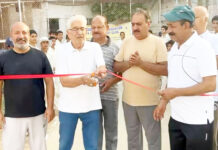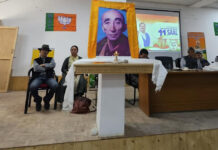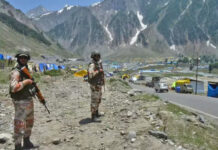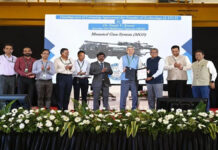India has underscored the urgent need to institutionalise involvement of women in conflict prevention and post-conflict reconstruction, lamenting their exclusion from negotiations during peace processes despite their noted contributions to peacebuilding. First Secretary in India’s Permanent Mission to the UN Paulomi Tripathi noted that majority of peace agreements signed in the last three decades have no women signatories and a vast majority of peace agreements fail to reference women and address their concerns, such as gender-based violence. “Despite recognition of women’s contributions to preventing, resolving conflicts and post-conflict reconstruction, they are often excluded from negotiations during peace processes,” Tripathi said Monday at Peacebuilding Commission’s Ambassadorial Level Meeting on Strengthening Linkages between Women, Peace and Security & Peacebuilding and Sustaining Peace’. “There is an urgent need to institutionalise the involvement of women in conflict prevention and post conflict reconstruction. This requires not only normative advice but also commitment, capacity and institution building at the ground level, she said. Tripathi noted that women also play an active role in providing early warning signals and prevent the escalation of violence, in countering violent extremism and in addressing conflict-related sexual violence. “Women’s participation in peacebuilding promotes human rights and social justice, enables better monitoring of the implementation of formal peace agreements, transparency and anti-corruption mechanisms,” she said. She emphasized the need to prioritize greater participation of women in UN peacekeeping to promote gender responsiveness. She recalled the landmark first-ever deployment by UN of all Female Formed Police Unit in Liberia by India when the Indian female peacekeepers had become a role model to the local women to participate in policing and in relevant rule of law frameworks. However, despite such evidence and strong commitments, only 6% of the UN peacekeepers are women today. “We need to incentivise participation of all women’s units, Tripathi said adding that providing adequate pre-deployment training on gender sensitization to the peacekeepers is another important aspect. Further, sustainable and predictable financing for promoting gender equality and women’s empowerment in peacebuilding processes remains a key challenge. “Funding through assessed contribution will give a strong political signal regarding collective commitment to peacebuilding,” Tripathi said adding that there is need to explore other alternatives such as dedicated funding instruments adopted in some countries and greater engagement of private sector in financing peacebuilding. She told the meeting that India, under South-South Cooperation, continues to support initiatives that focus on women’s participation and empowerment. “India follows demand- driven approach in its developmental assistance which naturally dovetails into the national priorities of the recipient country and builds local capacity, she said.

Dogra Herald is the media of J & K, breaking language and geographical barriers, connecting J & K to the rest of India.
0191 245 4946
info@dograherald.com
Latest articles
Yuzvendra Chahal In History Books, First Indian To Achieve This Major Milestone
Yuzvendra Chahal accomplished the landmark during his side's match against Punjab Kings in Guwahati.
Rajasthan Royals (RR) spinner Yuzvendra...
CUK organises non communicable diseases camp
dogra herald bureauGanderbal, Nov 14On World Diabetes Day, the Health Centre in collaboration with Directorate of Students Welfare (DSW), Central University of...
Vote for Modi Ji will be Vote for Vishwa Guru Bharat: Rana
DOGRA HERALD BUREAUKathua , Apr 15Senior BJP leader Mr Devender Singh Rana today said that a vote for Modi Ji is a...


























